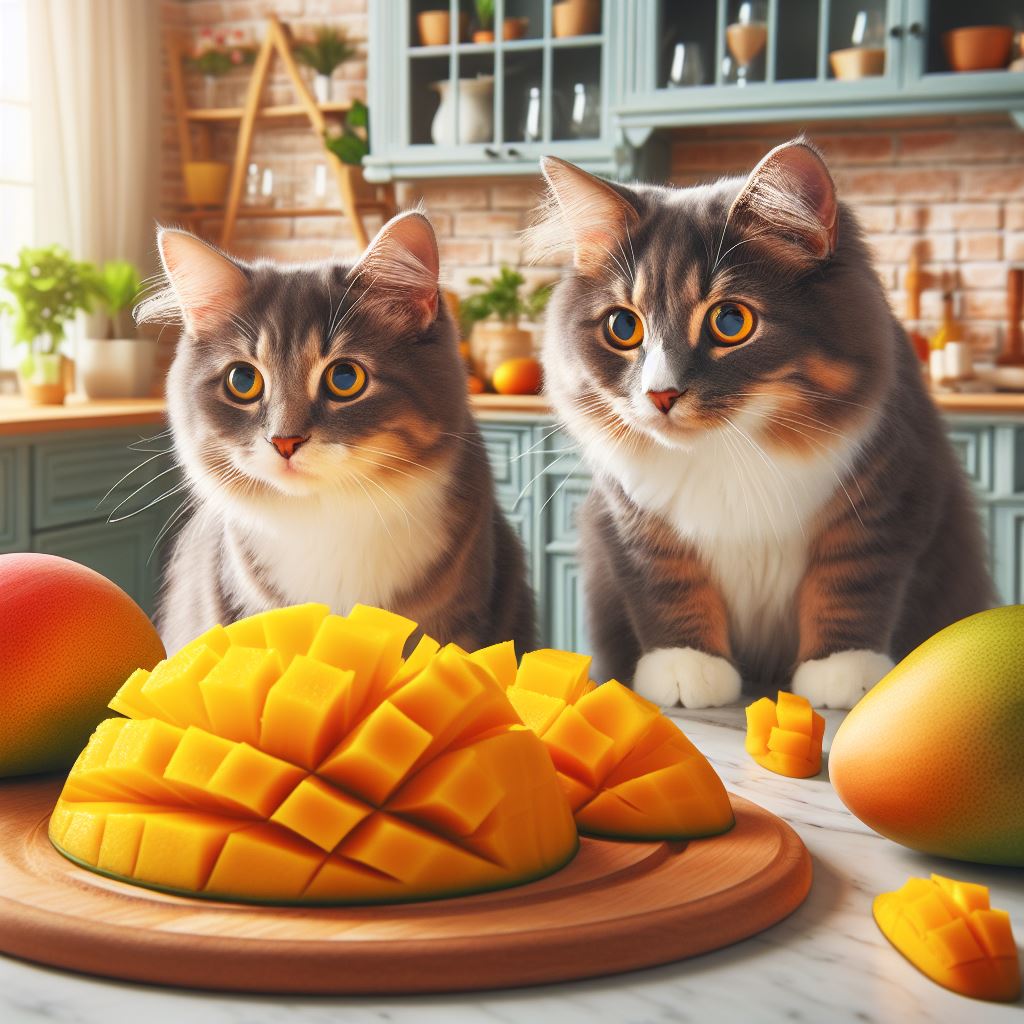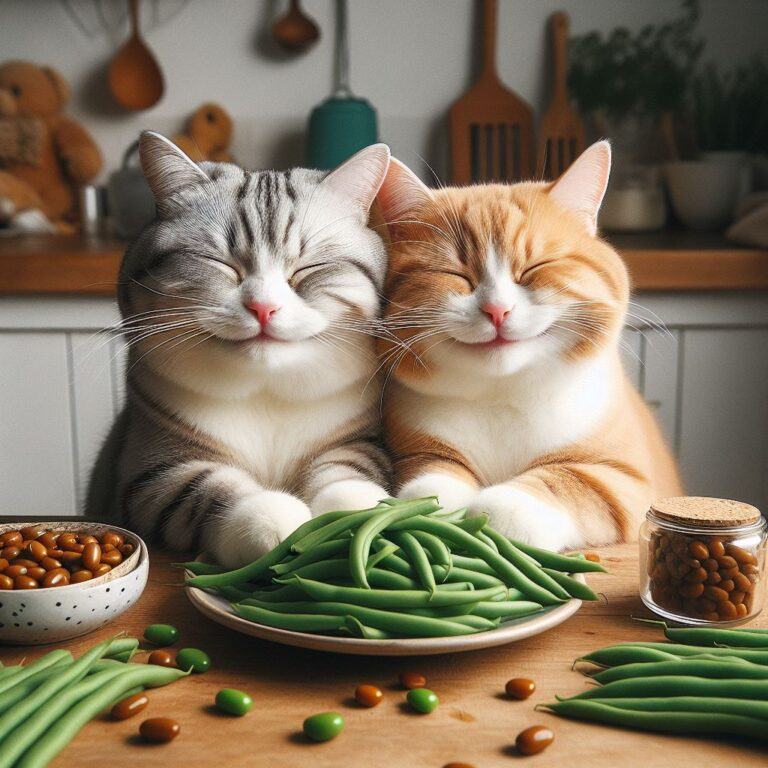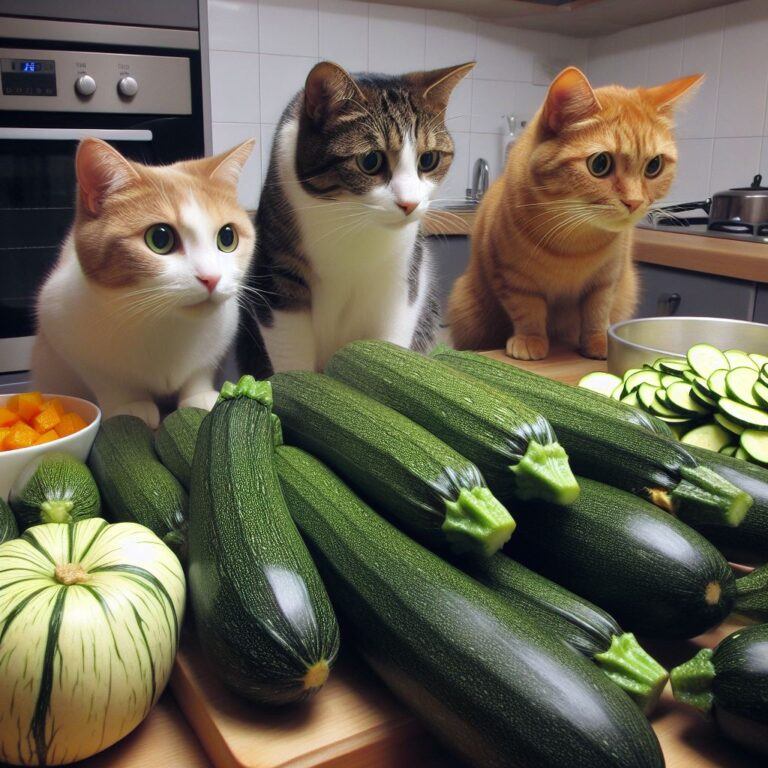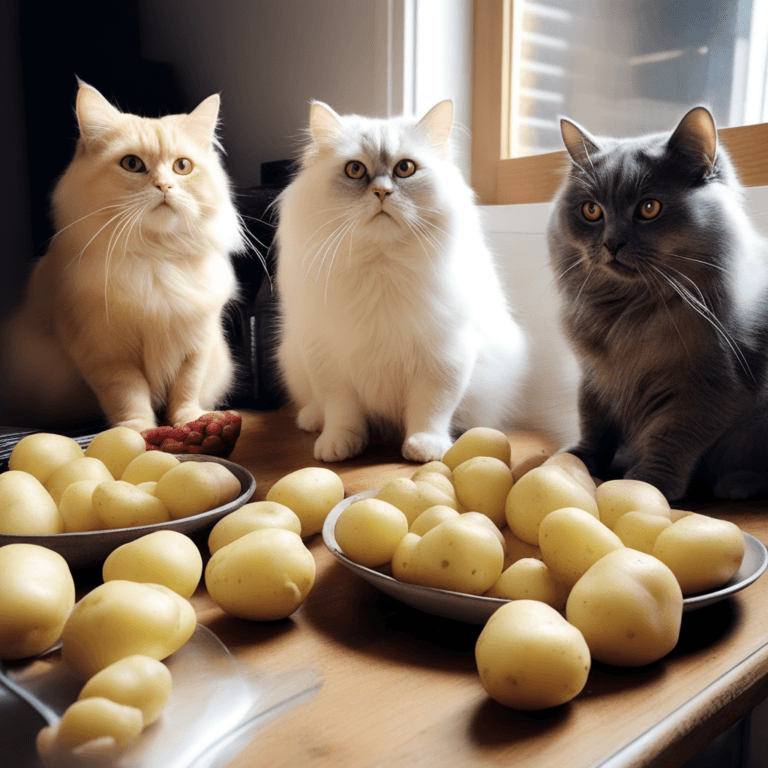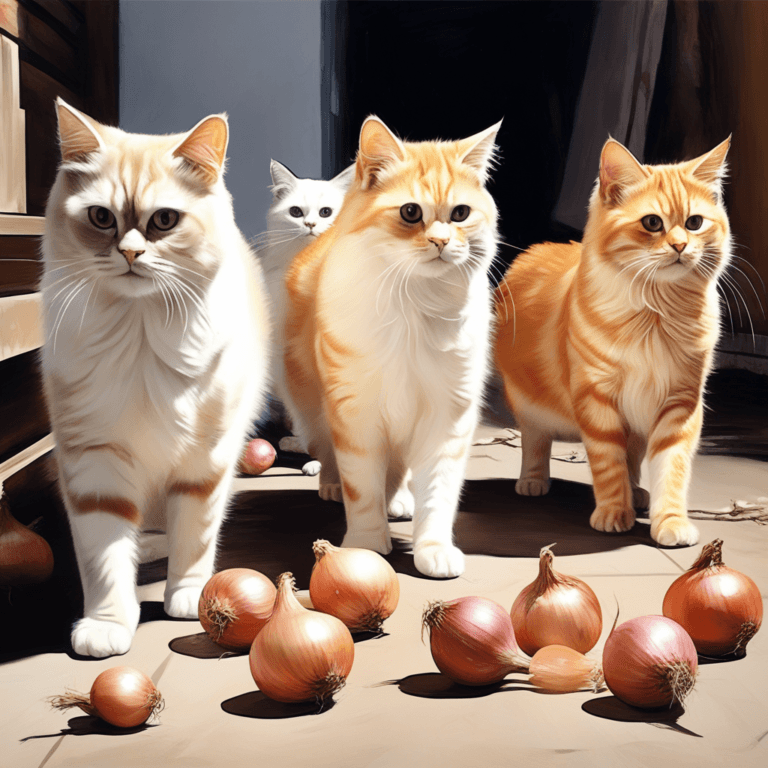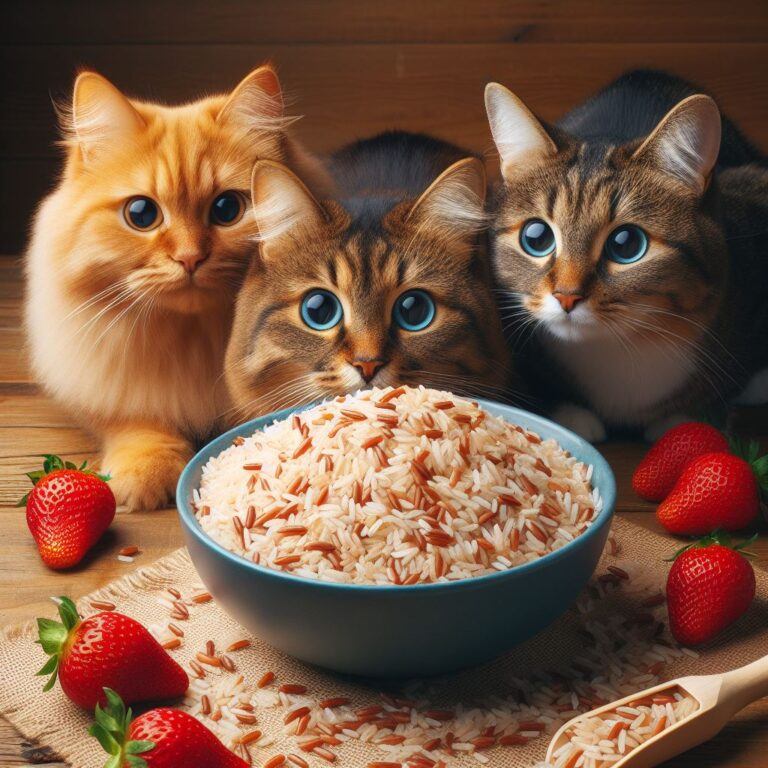Can Cats Safely Eat Mango
Cats can indeed safely eat mango in moderation. This sweet fruit is non-toxic to felines and can serve as an occasional treat. However, it’s crucial to remember a few key points to keep your furry friend safe and happy.
Before letting your cat chow down on this tropical delicacy, always remove the hard pit. This step is essential, not just to curb the risk of choking, but also to prevent any chance of a digestive blockage, which can be a serious health issue for cats.
Mangoes are rich in vitamins like A and C, which are beneficial to cats in small quantities. But, since cats are primarily carnivorous, they derive most of their nutritional needs from a diet of meat. So while a mango can provide some health benefits, it should never replace a cat’s regular diet.
With that in mind, if you’re considering adding a bit of mango to your cat’s treat rotation, read on for tips on the best way to serve this fruit, ensuring your cat can enjoy it safely and happily.
The Right Way to Feed Mango to Your Cat
If you’ve decided to offer mango to your cat, it’s crucial you do it correctly. Cats are obligate carnivores, meaning they require a diet primarily made up of meat. Fruits like mangoes should be a rare delight rather than a staple.
Here, I’ll walk you through the steps needed to provide this tropical treat safely to your feline friend.
First, wash the mango thoroughly to remove any pesticide residue or dirt from the skin. Then, peel the mango and cut a small piece of the soft flesh away from the pit. The pit of the mango contains small amounts of cyanide and poses a choking hazard, so ensure it’s completely out of reach.
When it comes to portion size, think small. A couple of small cubes, equivalent to a teaspoon, is plenty for your cat. Large quantities can cause stomach upset or contribute to obesity.
As for frequency, consider mango as an every-now-and-then treat, not an everyday addition to their diet.
Just like humans, cats can have food allergies. If it’s your cat’s first mango tasting, watch for any signs of discomfort or allergic reactions such as itching or gastrointestinal upset.
In the unlikely event you do notice something off, contact your veterinarian promptly.
If you’re considering adding mango or any other new food to your cat’s diet, it’s best to have a chat with your vet first. They can provide personalized advice based on your cat’s health status and dietary needs.
When Mango Is a No-Go: Understanding the Risks and Seeking Alternatives
It’s essential to know when mango isn’t suitable for our feline companions. Cats with specific health issues, such as diabetes, should avoid high-sugar fruits like mango. Overindulgence can lead to an upset stomach, which is an uncomfortable experience for any pet.
The hard pit of a mango poses a choking hazard and contains small amounts of cyanide, which is harmful to cats. Make sure any mango given to your cat is always pit-free.
The skin, too, is tough for cats to digest and may contain pesticide residues unless thoroughly washed or peeled.
If your cat shows signs of an allergic reaction, such as itching or gastrointestinal upset, after eating mango, it’s important to discontinue feeding and consult your veterinarian. Always observe your cat closely when introducing any new food.
Curiosity and taste preferences vary among cats. Some may not even show interest in mango, and that’s perfectly fine. There are many cat-friendly alternatives that can provide your pet with variety and nutrition.
Small amounts of cooked pumpkin, melon, or a bit of steamed carrot can be both safe and enjoyable for cats.
In conclusion, while cats can safely eat mango as an occasional treat, it’s vital to prioritize their safety and health with appropriate preparation and moderation. Always tailor your cat’s diet to their individual needs and consult with a vet if you’re unsure about introducing new foods.
Your cat’s nutrient needs are best met through high-quality cat food formulated for their life stage and health status, with treats like mango being just a small supplement to their diet.

